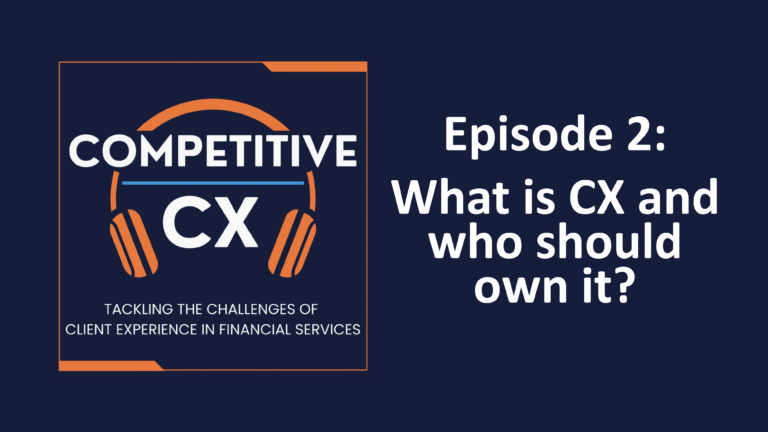In brief
What is client experience – and who should own CX in financial services? In this podcast episode, the Competitive CX team defines CX as a company-wide capability, measurable in time and money, that extends far beyond client service. Learn why true ownership requires executive leadership, behavioural insight, and a culture built around exceeding expectations.
What is client experience (CX) in financial services – and who should own CX?
What is client experience and who owns it? In this episode of Competitive CX, hosts Melanie Aimer, Hamish Taylor, and Adam Grainger challenge common misconceptions about CX and reframe it as a strategic, measurable, and organisation-wide capability.
CX isn’t a rebrand of client service or a one-time initiative; it’s the total effect your firm has on clients – from first contact to ongoing engagement. The team explores why real CX leadership must come from the top and be embedded across every function, not siloed in one department.
They share how firms can use behavioural insight, emotional intelligence, and structured governance to elevate CX from a buzzword to a true competitive edge. If you’re in financial services and serious about client outcomes, this conversation is your roadmap.
Client experience roles and responsibilities explained
In Episode 2 of Competitive CX, the hosts define client experience in financial services as the cumulative result of every interaction – not just onboarding or service calls, but the emotional and behavioural impact of the full client journey.
Is CX a function or a company-wide responsibility? They argue that CX should be recognised as a strategic capability, not a support function. Hamish Taylor reframes it as “the reason we exist,” while Adam Grainger highlights its measurable impact on time and money.
Melanie Aimer calls for a dedicated CX leader at executive level, empowered to bridge functions and drive cross-touchpoint improvement. The team warns against designing CX from the inside out, and urges financial services firms to embrace client immersion, behavioural data, and leadership alignment to elevate the experience.
Success means not just meeting expectations but exceeding them consistently – and that takes structure, insight, and ownership.
Grainger pulls this altogether by summarising CX as an ‘effect’ your company ‘causes’, measurable in time and money. “Because of this, it is a source of strategic competitive advantage … an ongoing, end-to-end, and cross-functional coordination task.”
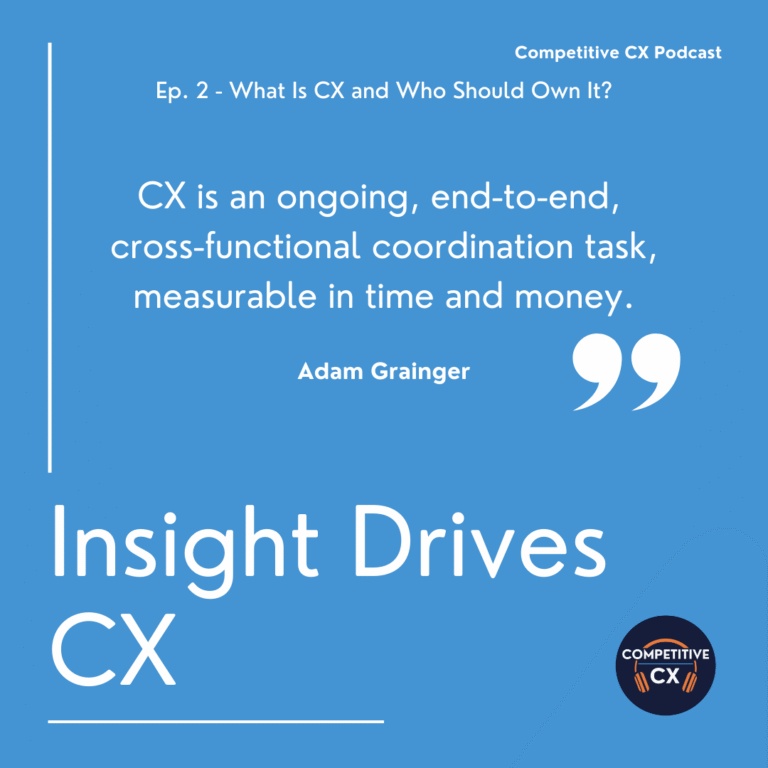
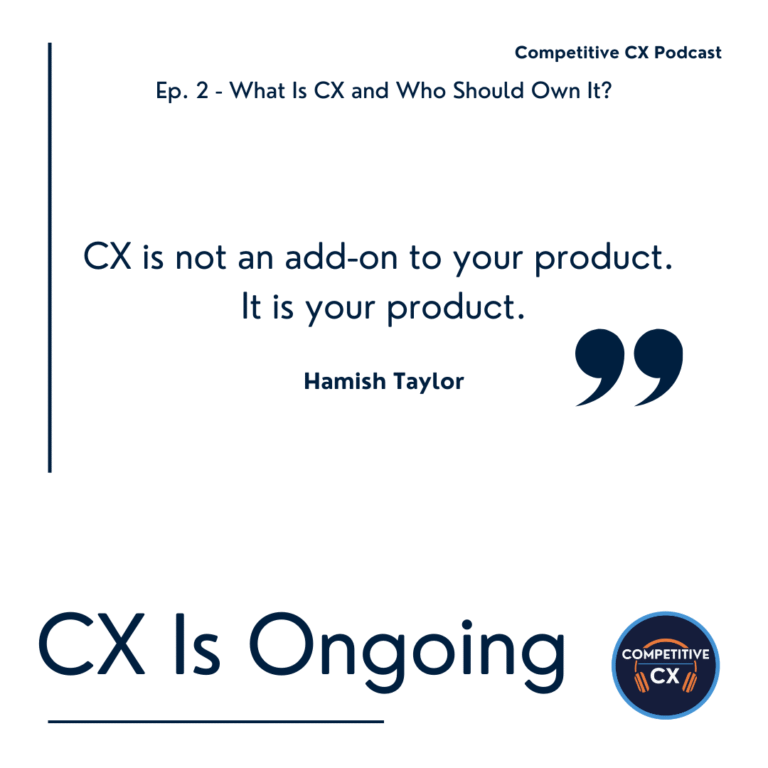
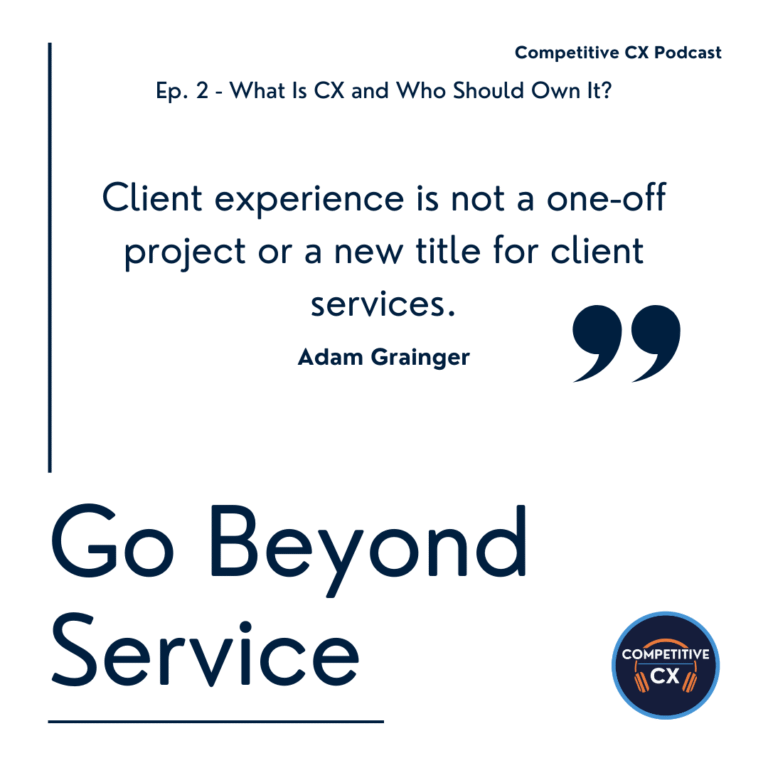
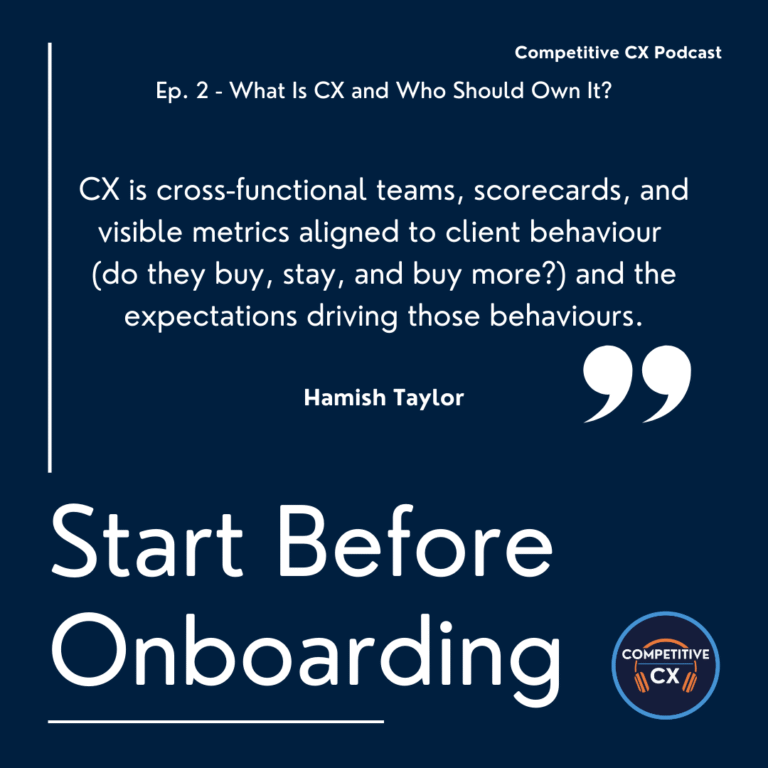
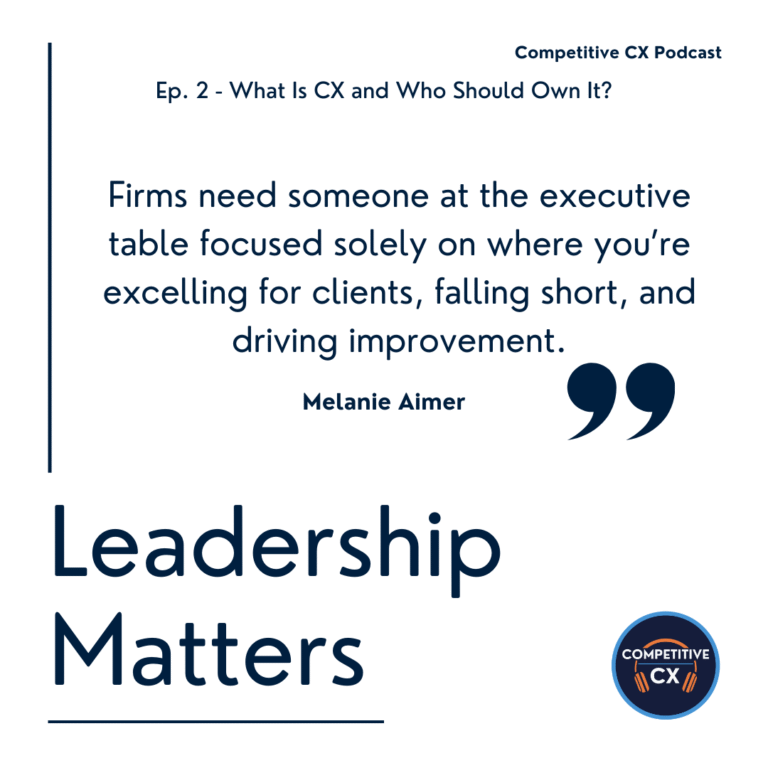
Key Takeaways
- Client experience in financial services is the total effect your firm has on clients – not just service interactions.
- CX is a strategic capability, not a project or rebranding of client services.
- Ownership must span the organisation – but a dedicated CX leader at executive level is critical.
- Great CX comes from exceeding expectations, not just meeting them.
- True insight requires behavioural data, not just satisfaction scores.
- Start with the client’s view – design outside-in, not from internal assumptions.
- Successful firms treat CX as integral to culture, governance, and growth – not an add-on.
If you’re an asset manager, check out Accomplish’s client experience services here.
And if you just found this useful, check out our other podcast episodes designed for financial services professionals:
- Why care about CX?
- What is CX and who should own it?
- Cultures that kick CX down the road.
- Organisational structure gets in the way of CX.
- Incentives that inadvertently deprioritise CX.
- Regulator – friend or foe to CX?
- Technology – enabler or disabler for CX?
- Solving the most common CX complaints.
- Where to start with CX?
Listen to the full recordings on Podbean.
Connect with Hamish Taylor, Melanie Aimer and Adam Grainger on LinkedIn and follow Competitive CX for cutting-edge insights on client experience in finance.
Frequently asked questions
1. What is client experience in financial services?
Client experience (CX) is the cumulative result of every interaction a client has with your firm – before, during, and after the sale. It is the ‘effect’ your company ‘causes’, measured objectively through the time and money clients give to your brand (behaviour) and subjectively through their feedback.
2. Who should own CX in financial services?
Ownership of CX should be organisation-wide, but a dedicated CX leader at the executive level is essential to drive end-to-end accountability, cross-functional alignment, and measurable results.
3. Is CX a function or a company-wide responsibility?
CX is not a support function or a rebranded client service team – it’s an ongoing, end-to-end, cross-functional coordination task that must be embedded across culture, governance, and leadership.
4. Why is exceeding client expectations critical to CX success?
Meeting expectations is no longer enough because ‘good’ is forgettable and, therefore, is no way to stand out. The firms that stand out are those that create surprise, delight, and emotional impact – this is where true competitive advantage lies.



